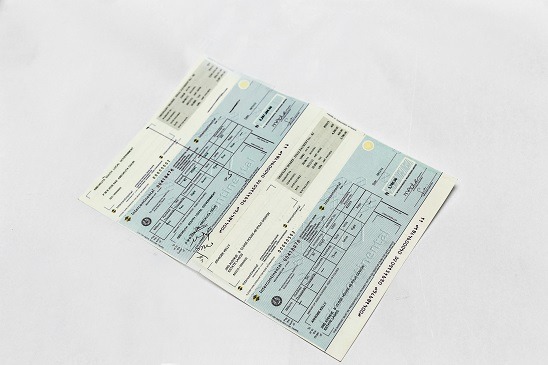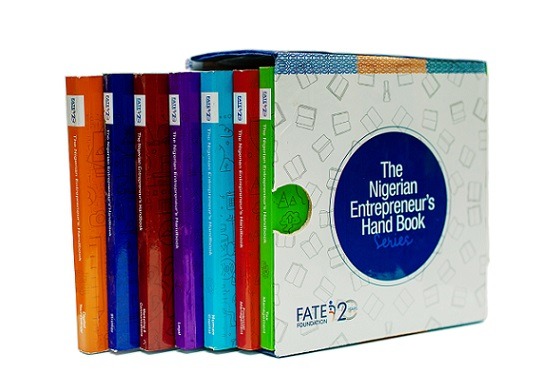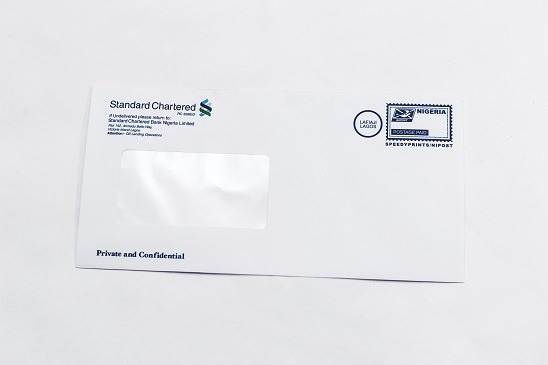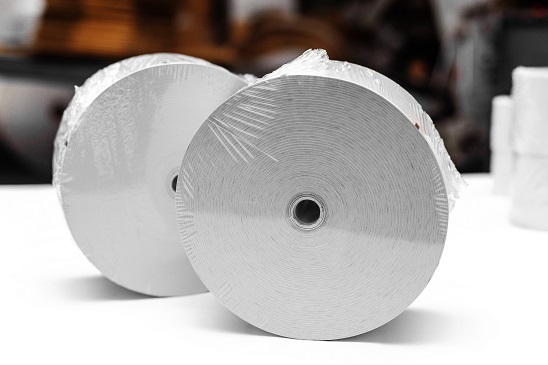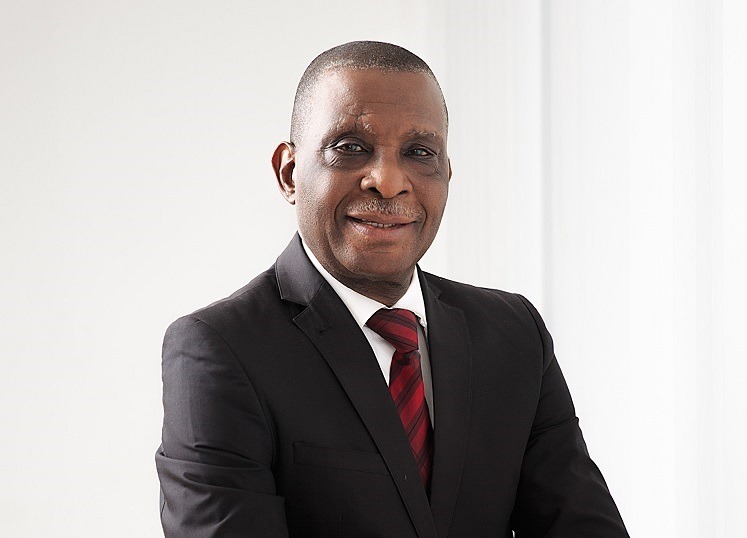We are pleased to feature you in this edition of our newsletter. 2020 was disruptive and very eventful for us in Nigeria. We experienced the outbreak of Covid-19 pandemic, the lockdown, the #ENDSARS protest, recession, currency fluctuations among others. Businesses and economies around the globe are still trying to recover. Superflux International Limited ably headed by your humble self, recorded profits despite the turbulent business environment and the economy witnessing a downturn. The timing could not have been more perfect to have this interview with you.
- In the wake of the Covid-19 pandemic, a compulsory lockdown was imposed by President M. Buhari, locking down the Nation’s capital and the commercial hub while also banning interstate travel and shutting the borders and air space. How were you able to keep the company culture alive and provide leadership for the company including the staff and manage your clients during and after the lockdown?
It came like a bolt out of the blues. We started the year 2020 on a high and positive note as the result of the first quarter of the year was quite impressive. Then, the announcement of the lockdown. It was not something you see in a management text book nor in the various management training courses. We needed to adapt and think out of the box. The first thing we did was to create a WhatsApp platform for the senior management team to address issues as they emerged and arrive at robust decisions. I was constantly in touch with the different HODs to address critical issues throughout the period of the lockdown. I must give kudos to my management team as they were all eager to keep the ship afloat during the very difficult period.
Managing clients during the period, particularly the Banks was a different ball game. You know how demanding the banks can be; some of them were demanding that they be supplied with chequebooks even when they knew that there was lockdown. We needed to see things from the bank’s perspectives, bearing in mind that Banks were allowed to work during the lockdown as essential service providers. Banks that have not outsourced their cheque management production were therefore able to provide cheque books to their important customers using their various in-house MICR centres even during the period of the lockdown. This scenario appeared to have put the banks that outsourced their cheque production to Superflux at a great disadvantage and the situation needed to be handled with utmost care and this we did very successfully. Thanks to the cordial relationship we had built with most of the banks over the years, we were able to make most of them to understand our position and with the assurances that they will be supplied with chequebooks as soon as the situation permits.
- The 2020 events were not anticipated. How was Superflux able to adapt and respond to the challenges faced by businesses including the uncertainty in the business terrain and the cash-crunch fragile economy?
It was a very dicey situation. On one hand, management and the Board were worried, not knowing how long the lockdown was going to last and knowing that the organization will continue to incur some costs even during the period of the lockdown. On the other hand, we also had a responsibility to think of the welfare of the staff who depends on their monthly salary for survival. Balancing these demands was not easy but we thank God we survived the very uncertain period and came out unscathed.
- What were your key lessons from the Covid-19 crisis, both from a business and a leadership point of view?
A leader must not panic during a crisis situation and as a leader you must keep your head on your shoulder at all times. Many organizations resorted to panicky measures during the first few weeks of the lockdown in April, 2020 but we thought that the right thing to do was to keep a clear head, monitor events as they unfold and read the situation correctly. Throughout the period of the lockdown, the management team was strategizing on how to immediately bounce-back whenever the lockdown was lifted. Upon the lifting of the lockdown in April, we used the first two days to implement the policies we had agreed on during the lockdown before allowing the other members of staff to resume work. By the time they resumed, the Covid19 protocol designed by HR and the HSE committee and other changes approved by management during the lockdown was already in place.
- During the pandemic, we have all been awakened to the fact that everything can change in an instant. As a result of the lockdown, employees worked from home till the lockdown was eased. How did the entire workforce adjust to the changes? Did the events of 2020 affect their productivity?
I am glad that you asked this question. It is not possible for a manufacturing company to effectively work from home. Yes, you can ask some of the administrative personnel to work from home but you have the bulk of the workforce that operates/run different machines and they needed to be on ground to do so. I like leading from the front and I cannot imagine myself seating at the comfort of my home, making occasional phone calls to the office and expect to get excellent results. You will remember that when the lockdown was lifted at the end of April, 2020, the guideline from the government was that organizations were to be allowed to work between the hours of 9am and 3pm. The moment this announcement was made, banks started demanding that we must give them chequebooks.
We did incredible things to supply chequebooks to all the banks working within the window allowed by government. We were only able to achieve this feat due to the commitment of the incredible workforce we have at Superflux. I remember addressing the entire staff upon resumption after the lockdown was partially lifted at the end of April, 2020. I explained the criticality of the situation to them, asking them to rise to the occasion if they wanted Superflux to remain in business and highlighted what needed to be done. You needed to be there to see their determination from all the staff affirming that they are prepared to do whatever is expected from them to ensure that we weather the storm. I have one of the most highly motivated and committed workforce you can think of finding in any organisation and I am so, so proud of all them. I also remain grateful to the Board as they have continued to give us all the necessary support we asked for, especially when it comes to staff welfare.
- Since March 2020, a lot of businesses experienced business disruption and downtime. How did Superflux not only thrive but triumph better than the previous year?
The magic is the solid foundation laid down from the inception of Superflux. Superflux is customer-centric and that has made our clients stick with us and remain loyal. We have a client base that believe in and trust us to provide quality services in a very professional manner to them at all times. It has continued to work for us as most of them see us as partners and a solution provider. We worked very hard to achieve the result we had at the end of the 2020 financial year. I am glad to note that the entire workforce have been handsomely rewarded with a generous Bonus payment for their efforts. We must again thank the Board for their understanding and support.
- Nigeria ranked 131 out of 190 countries on the 2020 World Bank Doing Business Index, moving up 15 places from 146th position in the 2019 Report. As the Managing Director of a leading printing company in Nigeria, how easy is it to do business in Nigeria considering the state of Nigerian ports, currency fluctuations, cost of freight, the tax regime escalating costs of raw materials?
Where do you want me to start from? Is it the exchange rate instability, cost of energy, sourcing of foreign exchange, rising cost of shipment or getting things out of the Port? It has been a nightmare running a company in Nigeria. How do you explain it that a 40ft Container that use to cost about $3,000 now cost between $11,000 and $ 16, 000 to make the same shipment from China for the simple reason that the Ship could be hovering in the waters of Togo for up to three months before it could berth at the Apapa/Tin Can Island Port. To move the same Container when it is eventually cleared now cost about N2 million from the Port to Ogba as against the sum of about N250, 000 we paid in 2019. Monthly electricity bill has jumped to about N12 million from the N6 million we paid some few months back. This is in addition to the costs of Diesel and Gas for the Generators.
Our clients are obviously not interested or they pretend not to be aware of the above challenges. We must however continue to strive to provide them with the excellent services Superflux is known for over the years notwithstanding the vagaries of the difficult operating environment. I think that is what separates the men from the boys; rather than wring our hands and complain, we try to live and deal with the challenges.
- Like other sectors of the economy, the print industry has its fair share of disruptions and with covid-19, we are witnessing many paperless and digital solutions. What is the strategy to ensure Superflux remains an industry leader in the print industry and remain profitable?
The issue of electronic payment solution replacing our various product offerings have been a major concern to us in the past several years and I can assure you that we are doing all we can to address the concern. Some of our major paper products such as Bank statement and Dividend Warrants have already been lost to the emerging payment solutions. Cheque usage has continued to reduce and will continue to decline. We are currently looking at IT based and other alternatives payment solutions to expand our product offering and prepare us for the demise of some of our current paper-based products which we know will fade-away in no distance future. We have only recently engaged the services of a Consultant for this purpose to bring external dimension to what we are doing.
- After several postponements, the revised Nigeria Cheque Standard is expected to come into effect from the 1st day of April, 2021. As an authority in cheque payment and processing solutions, can you explain for the benefit of the staff some of the key changes between the old and the revised Nigeria Cheque Standard?
While working in the banking industry, I represented my bank in the CBN/MICR Technical Implementation Committee – a technical arm of the Banker’s Committee saddled with the smooth implementation of MICR technology in the Nigerian banking system. Up until 2006, the production of cheque was unregulated and this created a lot of cheque fraud challenges for the entire Nigerian banking industry. An attempt was made in 2002 to regulate cheque printing in Nigeria by the setting-up of a Sub-Committee by the MICR Technical Implementation Committee to come-up with what was called temporary cheque Standard. I was made the Chairman while Mr. Niyi Ajao of the Nigerian Interbank Settlement System served as the Secretary to the Sub-Committee. In 2004, the Banker’s Committee mandated the MICR Technical Committee under the Chairmanship of Dr. Mrs. Sarah Alade, who was then the Director of Payment Systems Department at the CBN to come-up with a robust cheque Standard for the Nigerian banking industry. Dr. Alade worked tirelessly to see to the actualization of the version 1 of the cheque standard before she was elevated to a Deputy Governor prior to retiring as the Governor of the CBN. Mr. Frank Cartwright, a Briton was appointed the Consultant. We visited France, UK, South Africa and Kenya for what was called a study tour to understudy how cheque standard and cheque processing work in the various countries. We drafted the version 1 of the Nigeria Cheque Standard which came into force in 2006 with the main objectives of (i)Regulation & accreditation of cheque Security printers (ii) production of secure instruments to address the incidence of cheque fraud (iii) promote greater efficiency in the clearing system (iv) facilitate image technology, truncation and archiving in the Nigerian clearing system.
In 2019, the CBN in its wisdom decided to revise the Standard to incorporate new developments that has taken place since the introduction of version 1. Some of us outside the CBN/MICR committee who were considered knowledgeable were invited by the CBN to assist in the revision. Aside from some changes on the cheque format, the revised cheque standard (version 2) introduced additional check digit for the validation of all the fields on the MICR codeline and Expiry Date also on the codeline that now stipulates that issued cheques will cease to be valid after five years from the date of production.
The revised version also introduced the QR code on the reverse of the cheque. The QR code is seen by the CBN as the final onslaught on the fight against cheque fraud. This unique feature is expected to checkmate fraud incidents relating to cheque cloning when fully adopted. Superflux has upgraded its machines to be able to print the QR code seamlessly on cheques and one of the banks have since adopted the solution and has testified that it has become almost impossible for fraudsters to clone their cheques. It is expected that the CBN will soon make this future mandatory.
- Could you please briefly tell us what the management of Superflux is doing to motivate the workforce and improve staff welfare?
We are very much aware that our staff is our greatest asset. We have continued to do all that is within our resources to promote staff welfare and motivate our workforce. I will give you some very recent examples.
- A 10% salary increase across board was recently awarded to all members of staff effective January, 2021. You will agree with me that this is a very risky step for any organization to take at a time of global economic uncertainty. At a time when many organizations in Nigeria and across the globe are making their workers to accept pay-cut ranging between 20% to 50%.
- It is instructive to note that all our staff have continue to receive 100% of their emoluments since the COVID-19 pandemic started in 2020
- We paid a very generous bonus amount to the staff at the end of the 2020 financial year
- Deserving staff were promoted at the end of the 2020 financial year
- In terms of training, two marketing staff is slated to attend a course at the Cranfield University in the United Kingdom as soon as the on-going restriction on in-person-class attendance is lifted. One of our staff is currently attending the Senior Management Program (SMP) at the Lagos Business School. One of our Engineer is currently processing his Visa to the USA for a Six weeks training program on a newly acquired machine in Atlanta, USA. These are in addition to other local training programs that have been undertaken by different staff in the very recent past.
- Where do you see Superflux Int. Ltd in the next 5 years?
My dream has always been to handover Superflux a better organization than I met it. I look forward to seeing Superflux grow into an international brand and I strongly believe this is achievable with the workforce we have been able to put in place. Like I mentioned earlier, we have well trained and committed workforce.
- How do you unwind after the day’s work?
With the current restriction due to the COVID-19 pandemic, socializing is now highly restricted. In any case, I get home a bit late and tired Monday to Friday. Saturdays and Sunday allows me to catch my breath and watch football and other sporting events on Telly.


